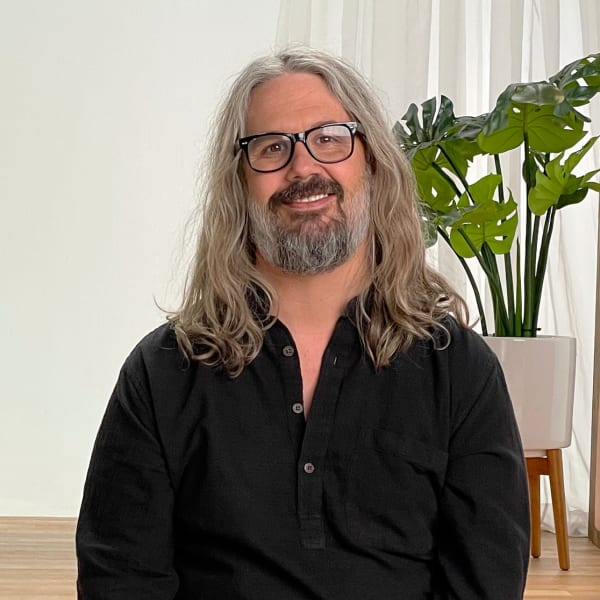Practice Grace to Forgive Enemies

I've guided many meditations on "forgiveness" over the years. It wasn't until this current stage of my life that I began to understand how powerful it is to truly forgive — ourselves and others. This theme runs deep in many spiritual traditions.
The Most Famous Forgiveness Teaching
Jesus was a significant teacher of forgiveness and is probably the greatest exemplifier, so we begin with a passage from the New Testament, In the Book of Luke.
Jesus says to his disciples in 6:27:
But I say unto you who are willing to hear, love your enemies. Do good to those who hate you. Bless those that curse you. Pray for those who mistreat you. If someone slaps you on the cheek, offer the other one as well. If someone takes your shirt, give them your coat as well. Give to everyone who asks, and don't demand your things back from those who take them. Treat people the same way you want them to treat you.
You may have recognized "turning the other cheek" and the Golden Rule of "treat others as you want to be treated." The part that stands out to me is where Jesus says, "Do good to those who hate you. Love your enemies. Bless those who curse you. Pray for those who mistreat you."
Jesus is not talking about just being nice in general. He says a little later in this chapter; when practicing love, it's easy to love people who are easy to love. In the practice of giving, it's easy to give to people who give back to you. Everybody loves people who are nice to them. But Jesus asks, can you love even those who mistreat you?
I believe this isn't just about people who are "hard to love." Jesus isn't asking his disciples to notice people they don't see. These are vital teachings, but here he's speaking specifically: "Love your enemies."
Do You Have Enemies?
It's an intense experience to have an enemy. Recently I was talking with Parvathy Baul, the great Bengali Baul singer and master of that devotional tradition, about "loving our enemies" in the context of karma and relationships.
Among the billions of people living on earth at the same time as you, how many do you ever lay eyes on? Even the famous who perform at big stadiums only encounter millions of the billions. For the rest of us, It's probably more like hundreds of thousands of people we experience, which is a slither of the world's population.
Consider the people you've laid eyes on; how many of those have you interacted with? Now consider the people with whom you've had relationships from birth to death. How many genuinely affect you? A handful; within that handful of people are our enemies.
A Karmic View of Enemies
Our enemies have a powerful impact on us, often stronger than our friends and loved ones. We have karma with our enemies; according to Eastern teachings, karma is necessary for us to interact regardless of the nature of the relationship.
The person who mistreats you is someone you have a soul connection with or a "soulmate." Everyone wants to meet their soulmate, so if you make a list of your biggest enemies, well, there you go! Part of your soulmate list is filled out.
While good times and loving moments with our "positive soulmates" are powerful, so is forgiving people we consider our enemies.
Introducing Radical Grace Medicine
RGM, or Radical Grace Medicine, comes in moments of radical forgiveness. If somebody slapped your face, can you imagine giving them the other cheek? Can you imagine the mentality that Jesus is calling us toward?
I can. It's been something I've been initiated into with people who hurt me badly, whether they meant to or not. I know so well the moments where everything in me wants to hate, kill, badmouth, pretend the person doesn't exist and say no to their worthiness or value as a human being.
RGM teaches us to say, "No! In this situation, I shall love. I shall put my hurt and compulsion to hurt aside and love instead." Marianne Williamson talks about this as "karma versus grace." She says the Buddha taught about karma hundreds of years before Jesus talked about grace.
Karma is the cycle of cause and effect. You hit me; I hit you back. You hate me; I hate you back. Grace is breaking that cycle: You hit me; I love you. You hate me; I love you. You condemn me; I love you. No matter what, love is the answer in that radical grace configuration.
The Two Types of Enemies
That's why RGM is so incredibly powerful. Consider the karma that we have with our enemies. It's either an enemy we've created or one that is seemingly random.
The first kind of enemy is someone who, during our life path, we wronged, offended, or challenged and they have decided to be our nemesis. They want to bring us down, stop us, or harm us in some way.
Have you ever experienced that? Whether you feel like you deserve it or not, you're always involved in creating that enemy. Once, they were a friend or a neutral acquaintance. Now they are against us.
The other kind of enemy is seemingly random. Someone attacks us on the street; someone who doesn't even know us does something that affects us or someone we care about, and we might not be their enemy, but now they are our enemy. They are the potential object of our hatred, but we didn't do anything to bring this on. It just came about.
While karma doesn't teach about randomness in this way, there must be some karma there.
The Bhagavad Gita (4:17) says, "Mysterious are the ways of karma."
Karma's not supposed to be understood, except to the extent that we know it's a factor. Regardless of the enemy, arriving at a moment of radical forgiveness throws a monkey wrench in that karmic momentum.
Waking Up to Our Ability to Love
When the insult or injury is random, maybe from some past life, or prarabdha, karma, it could have the effect of wrecking us. If someone insults, physically harms or traumatizes us, that pain could turn us into a negative entity. Traumas can spiral us into lifestyle crime; it turns us into a villain and an enemy to others.
When we go for the RGM, instead, we say, "No. I'm going to love this person."
I don't mean in a co-dependent way, becoming a doormat, conflict-avoidant, or going into denial. I'm talking about real, in our bones, doing that work to love our "random" enemies.
There's also karma among the relationships that that shifted from friends to "frenemies," then enemies; or supporters to backstabbers.
Guess what? We've created it, whether we meant to or not. Sometimes, if we simply disappoint someone, it's taken as an offense to them. Perhaps you've said "no" to something they wanted you to say "yes" to, and now they're offended. Even in these situations where we feel innocent, if you look at it from the point of view of karma, we have something to live down.
And, of course, in some cases, we have messed up. We were unconscious. We hurt someone we didn't mean to; maybe we even harmed someone deliberately. We were that blinded.
Rumi says, "Tomorrow we will awaken to see what we have torn and broken thrashing in the dark tonight." Jesus says of his executioners, "Father, forgive them; they don't know what they're doing."
We rarely know what we're doing when we harm people — even if we do it consciously. If our human heart is awake, we don't want to hurt anybody. You and I both know that when we're awake and free, we're going to do good and be kind and loving.
Reflecting on How to Forgive
It's important to forgive ourselves when we may have created an enemy with our actions, words, attention or lack thereof. This helps us see our side of the story and forgive our enemies unconditionally, unilaterally, and completely.
We reflect:" I don't think I deserve to be treated this way by this person, but I've never walked in their shoes. I'm not perfect; I probably harmed them in some way." In some cases, the people with who we have the biggest resentments are people who we've been unkind to in some way or another.
Sometimes these turn into really bad karma, such as family feuds, long-held resentments and occasionally murder. Remember that these old teachings in the Bible happened when to forgive someone often meant to spare their life. We maybe have evolved past this kind of wanton brutality, but that doesn't mean those currents don't still live inside of us.
The RGM of forgiveness is deeply healing when considering our past as human beings.
When we can look at our enemies — and the karma we have with our enemies — and then practice radical forgiveness, it allows us to not only stop that momentum of karma but to step into the flow of grace.
Try this course 21 Day Jump Start to a Powerful, Joyous Meditation Practice, by David Harshada Wagner to experience how meditation may help you cultivate space between action and reaction the next time you feel triggered.
Header Photo: Urbazon/E+/Getty Images





